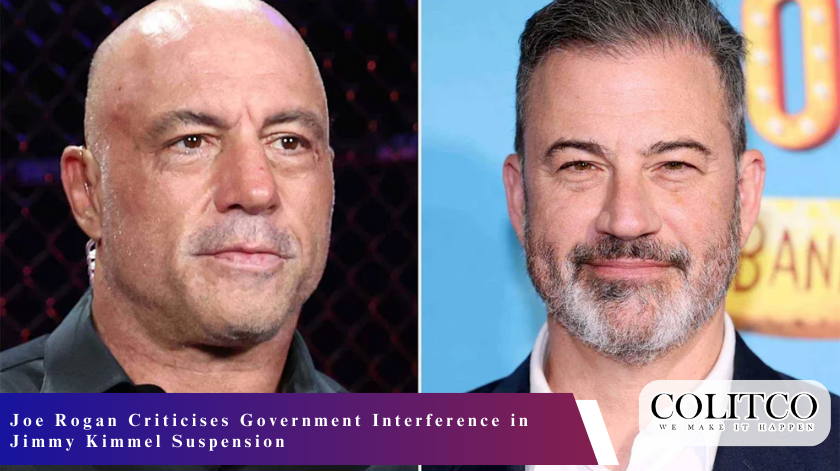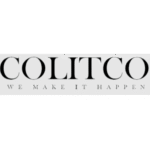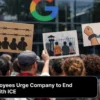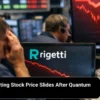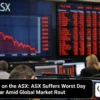Joe Rogan publicly denounced government interference in the media after Disney’s ABC suspended late-night host Jimmy Kimmel temporarily. In his podcast, Rogan said that the government should not dictate what comedians can and cannot say, citing that conservatives who defend the interference are putting themselves in jeopardy for future censorship.
Rogan, one of the tough voices defending President Donald Trump during the 2024 election, stressed that media interference by the government could one day happen to anyone, regardless of political affiliation. He described approving of that as “crazy” and pointed out that the precedent may come to haunt those who preach it.
Jimmy Kimmel’s Show Temporarily Removed from Air
ABC yanked Jimmy Kimmel Live! Out of the schedule last week, after Kimmel’s comments on the suspected murderer of conservative activist Charlie Kirk. The show was deferred from the air for nearly a week prior to coming back on Tuesday night.
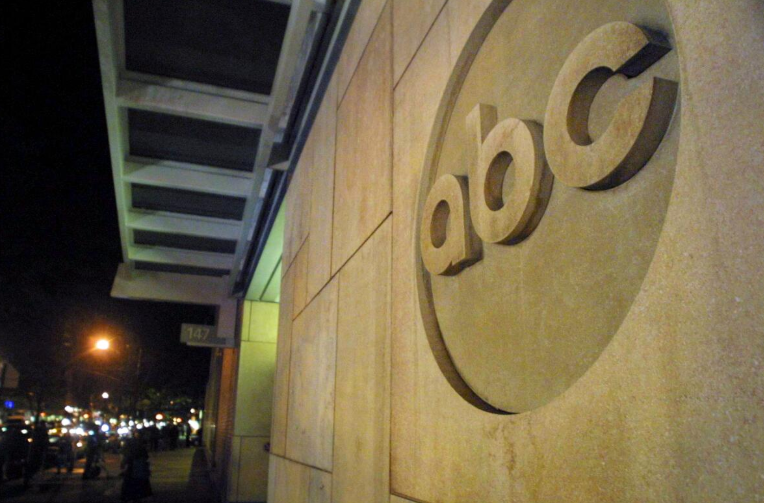
The decision created free speech controversy and the role of government in regulating media. Kimmel’s statements on the MAGA movement and the alleged shooter had already sparked criticism, so the freedom of speech of the First Amendment and how far comedy goes were debated.
Disney officials responded to the controversy in the wake of Federal Communications Commission Chairman Brendan Carr’s indications that networks would be forced to respond to it. Certain media corporations, including Nexstar Media Group and Sinclair Broadcasting, also preempted Kimmel’s program during the scandal.
Kimmel Addresses Controversy on Return
Upon his return, Jimmy Kimmel had an emotional address in response to the temporary suspension and to the criticism for his comments. He clarified that he had never intended to downplay the assassination of Charlie Kirk or to vilify any specific group.
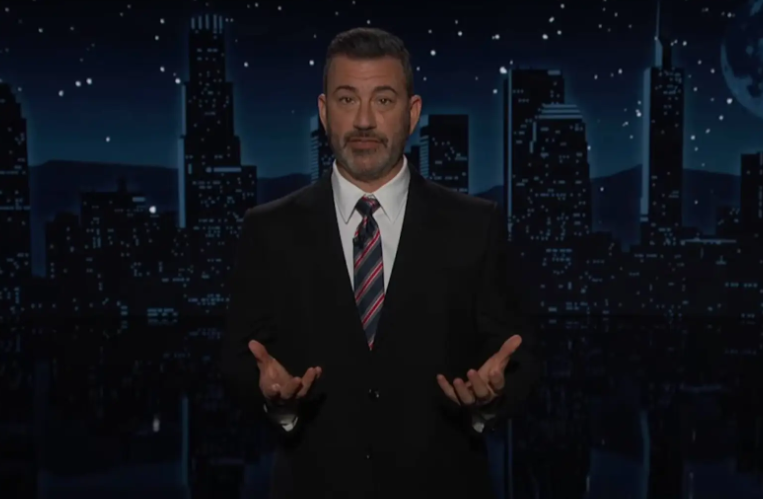
Kimmel explained that his previous comments were regarding the shooter as a human being and not as a sign of some political trend. He reiterated how sorry he was on behalf of the family of the victim, stating that he had already posted condolences on Instagram that day when the shooting happened.
The host appreciated that some were offended by his earlier comments as being ill-timed and understood the same response. Kimmel stressed that the subject of such tragedies demands tact while still having the liberty of commenting on contemporary issues using humour.
Conservative Support Figures
Several conservative leaders stepped forward in defence of Kimmel’s freedom of speech despite the fact that they disagreed with his views. Senators Ted Cruz, Mitch McConnell, and Rand Paul, and pundits Ben Shapiro, Clay Travis, and Candace Owens defended Kimmel’s freedom of expression without interference from the state.
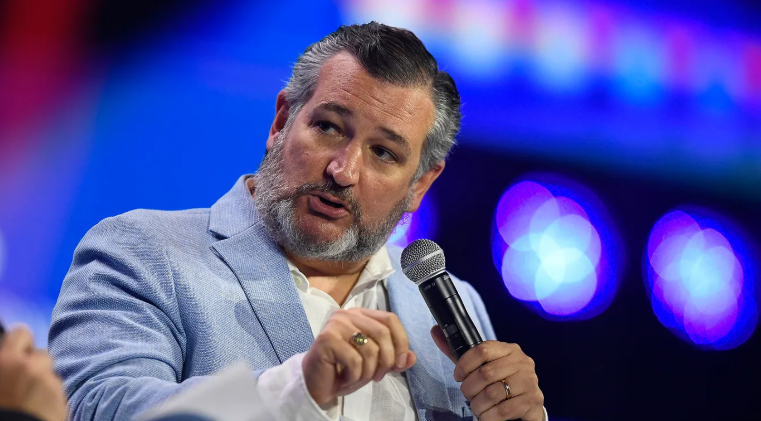
Ted Cruz especially pointed to concerns about the pattern of government pressure on the press. On his podcast The Verdict, Cruz warned that silencing one individual today could lead to restrictions tomorrow for conservatives. Kimmel accepted Cruz’s premise after his return, stating free speech protection covers all.
The host also commended these people for courageously standing against undue pressure, valuing the merit of upholding the principle of expression regardless of party politics.
Government and Media Pressure Criticism
Kimmel criticised President Trump and the FCC’s move to issue the temporary suspension directly. He stated that the administration’s threats against ABC were “anti-American” and highlighted the importance of being in a country where media institutions can operate freely without government pressure.
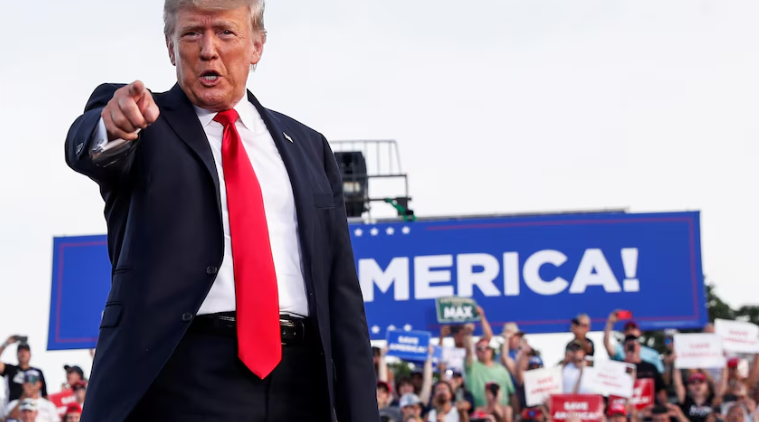
President Trump criticised ABC and hinted at government action after Kimmel’s controversial remarks.
Kimmel criticised the move by Disney to pull out the program, but commended the company for taking a stand for his right to provide political commentary using satire. He highlighted the risks the company had been put under from the attacks of the administration and pointed out the impact on backstage employees.
The ABC host described the incident as an episode of political pressure exerted on media selection, highlighting the thin line corporate compliance must walk in sustaining journalistic independence.
Apologies and Clarifications
Kimmel apologised during the airing for making light of Charlie Kirk’s assassination. He said that he never meant to trivialise the murder and that his comments had been misconstrued by some viewers.
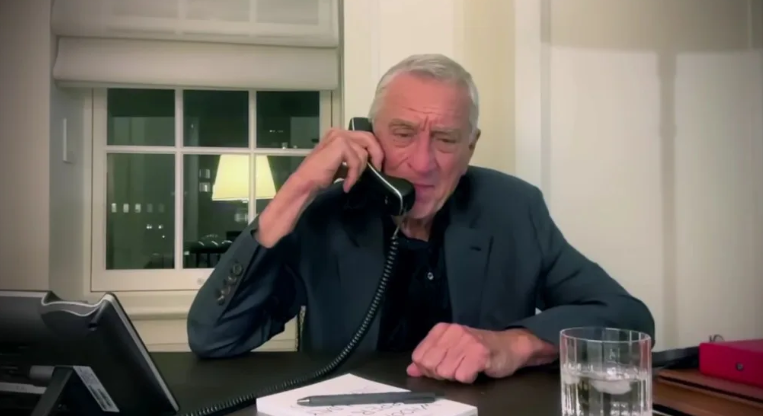
He noted the distinction between disapproving of a tragic event and blaming an entire group of people. Kimmel emphasised that the shooter acted independently and not as a member of some larger movement. He thanked the victim’s widow, Erika Kirk, for publicly displaying forgiveness, which Icke reported had greatly moved him.
Besides this, Kimmel also had a comedic cameo by Robert De Niro as a fictional mob boss controlling the FCC to give context to previous criticism of FCC Commissioner Brendan Carr.
Broader Debate around Free Speech
Suspension and reactivation of Jimmy Kimmel’s show have triggered a broader debate around government censorship of speech and media content. Opinions by Rogan point to the fear of political interference overburdening individuals across politics.
The episode has demonstrated how politicised incidents produce pressure upon media institutions to respond in a preemptive fashion. While as much as Kimmel was attacked on timing and wording, the support he enjoyed demonstrates the shared ground of protecting freedom of speech against interference by the state.
Observers and analysts continue to monitor responses from networks and officials, gauging how public comments and political pressure influence programming decisions and the artistic autonomy of media personalities.
Also Read:Harold Dennis Dickie Bird Obituary: Cricket Loses an Icon at 92
Final Thoughts
Jimmy Kimmel’s re-emergence on the air was a milestone in media freedom and government interference discourse. His monologue, talking about the controversy and reaction from the audience, foregrounded the combination of sensitivity and free speech in comedy.
Joe Rogan’s intervention lent energy to concerns about government intervention and encouraged a wider audience to become aware of the longer-term consequences of supporting such interference. The program is an exemplar of how media, politics, and public opinion intersect in contemporary broadcasting.
The debate regarding Kimmel’s suspension and Rogan’s remarks continues to persist with discussion of the boundaries of expression, responsibility, and the values that shape Australian and overseas media landscapes.

